How to Be Perfectly Prepared for your Hospital Work Experience in 7 Steps
Written by Czech Hospital Placements on Tuesday, May 3, 2016
Hospital Preparation Work Experience Placement Mentor Colleague Department Shadowing Internship

Do you plan to join the hospital staff as a new team member, as an intern, or as a student for a shadowing placement? The big day is approaching, you are excited, and a little bit frightened at the same time about the challenging clinical environment where no two work days are the same. The preparation is a key to success, so why not to start with it right now from your PC? We bring you these useful tips on how to be perfectly prepared for your hospital work experience even before it starts. Get ready and enter the door to your healthcare career on the right foot.
1. Get to know the hospital employees
The career you have chosen is all about people - their health, lives, and their stories. Of course the main focus is on the patients. But your future colleagues are equally important. You want to start off with a good impression, right? Then find out who are the people you will meet - your mentor, new colleagues, the heads of the departments, and the management members.
You never know who you will be talking to. It is a great advantage when you prove your honest interest. Have you read their latest contributions or specialty related articles? Do you know if they were on a mission abroad? Have you found out why they have chosen this career in a personal interview? It will make you stand out from the others. Try to browse as much information as possible about the staff on the hospital website before arriving.
Do you want to know who will be your mentor during your hospital placement? Check out the profiles of our healthcare professionals who are keen to share their knowledge and years of experience with you.
2. Be familiar with the hospital structure
You don´t want to get lost on the first day, do you? Download the map of the hospital into your mobile device and check it carefully.
Be aware of the departments´ location, e.g. the Neurosurgery Department takes place is on the 8th floor of pavilion C above the department of Neurology. You also know that on that floor you can find the Neurological clinic where EEG’s and EMG’s are performed. The clinic is open from 8 AM until 5 PM. You can avoid confusion running around the hospital by searching for a help, instead of missing an important performance such as a scheduled surgery for a brain tumor.
Also don´t underestimate the information about the cooperating healthcare institutions to broaden your overview. Such as the private dental clinic, its brief history, and news. Now you have various topics to talk about with the staff right from the first day! Well done!
3. Don´t forget to look at all information about the department
The same applies to the perfect knowledge of the department where you are going to work or shadow your mentor. Read all you can find online. Do not miss the social media channels of the hospital where you can find news and follow them. Many newbies come to the department and start to look around without any idea about where they are. You want to avoid that impression.
The hospital´s website is a MUST. Do you have an idea about how the structure of the ARU department may look like? How many patients can be treated there after severe injuries? How many team members of the hospital staff are usually at service?
All that will help you to know the department more.
4. Have a solid knowledge base about the specialty
Once you come to the hospital as a student, the doctor or nurse who mentors you want to see that you are keen on learning and are doing your best to become one of them. It includes the solid knowledge about the department specialty, procedures, treatments, and patient approach. You couldn’t understand the job properly if you lack knowing the overview.
We at the CHP Program think that having a good knowledge base about the department you have chosen for your placement is absolutely necessary. Therefore we will provide you with our exclusive study materials – you can learn from home and come to the hospital placement ready. Why not write down the questions you want to ask even before you go.
6. Speak like a master
- Medical terms
Everyone should come with a good specialty overview. If you are interested in pursuing a future career in healthcare or have fell in love with a concrete specialty, you need to know what your mentors and colleagues are talking about once reviewing a patient´s case. Learn more from the medical vocabularies. You will need to describe human anatomy, diseases, and use the technical terms, such as angina pectoris or artificial pacemaker
- Acronyms
Learn the acronyms and abbreviations ahead of time. There are many of them in healthcare vocabulary. You are expected to know at least the basic ones, for instance, NICU = Neonatal Intensive Care Unit, ECG = Electrocardiography.
- Slang expressions
We recommend you to be professionally correct and not use any slang expressions, especially when you are not familiar with the hospital team. Many of those words are really abusive. But you may hear some of them, so it´s good to know the hospital unofficial jargon. For example we mention GSW = gunshot wound or Gas passer = anesthesiologist.
7. If you can, varify the information with an insider
We recommend to ask questions to someone who already works in the hospital. If you have the opportunity, call a friend who has been involved in shadowing at the hospital, to ask him or her about the hospital structure, the department, times of patient´s examinations, simply all insights he or she can provide you with. Don´t hesitate to ask any staff member about his or her experiences ahead of time, if you have a chance to get your information the right portion of validity.

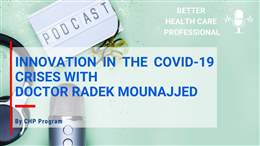
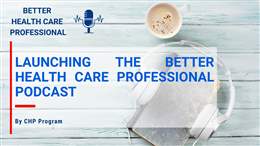




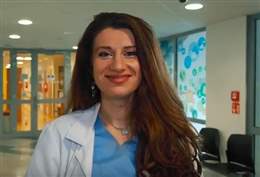

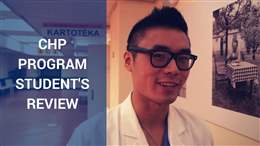
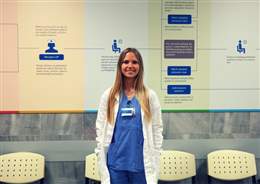


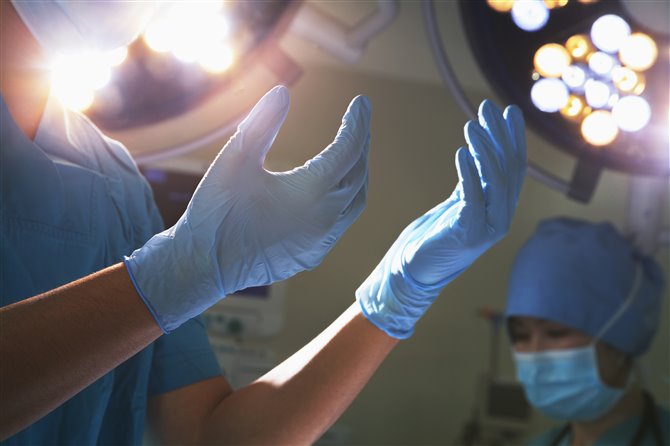



Categories
Behind the Scenes of the University Hospital in Motol
Being a Healthcare Student
Best Adventures While Travelling
Discover the Medical Specialties
Inspiration: Practical Experience of Healthcare Professionals
Obsolete vs. Visionary
The Better Health Care Professional Podcast
Tips and Tricks for Your Successful Career
Top News in Healthcare
Travels in COVID-era